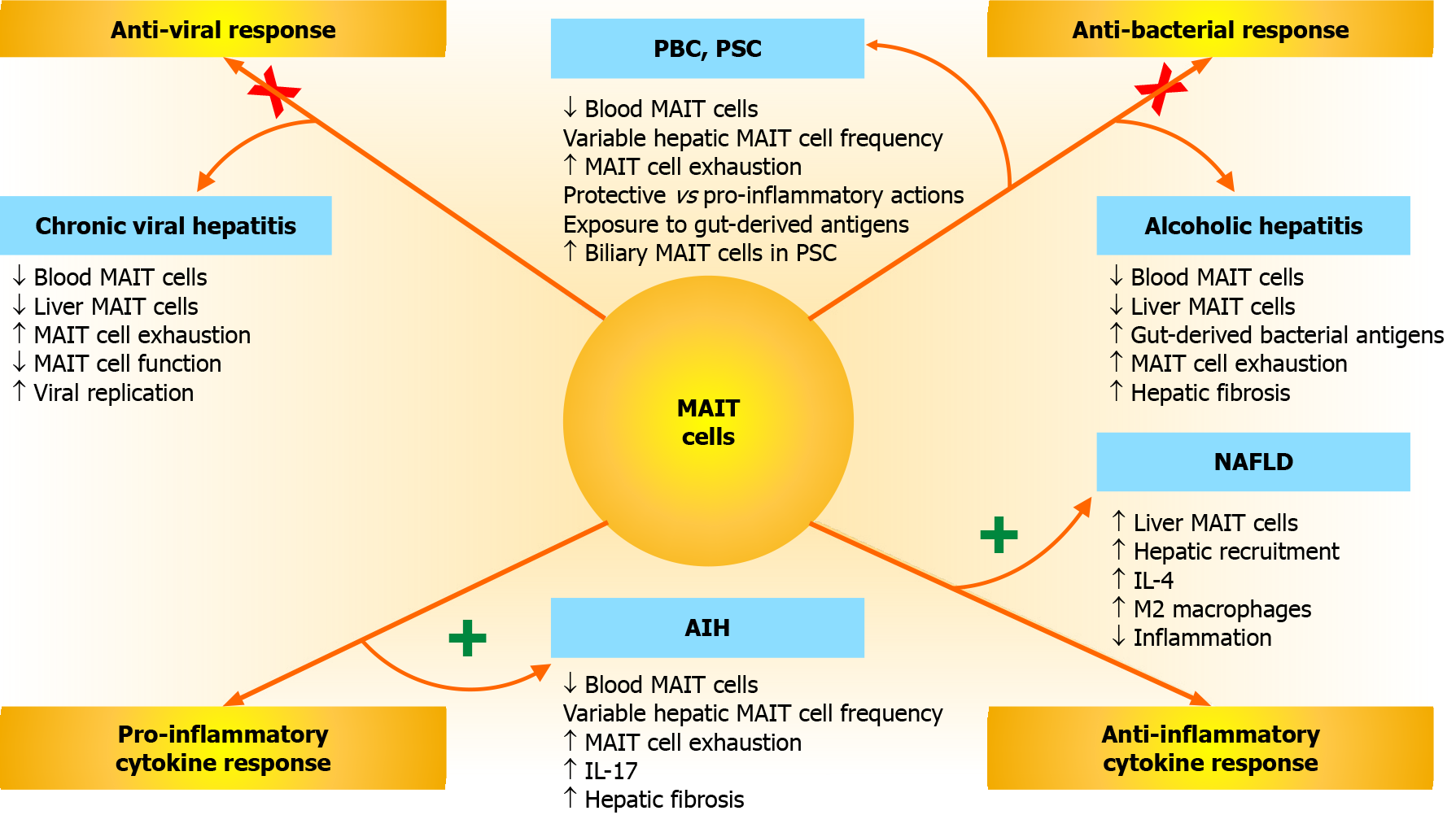Copyright
©The Author(s) 2021.
World J Gastroenterol. Jul 7, 2021; 27(25): 3705-3733
Published online Jul 7, 2021. doi: 10.3748/wjg.v27.i25.3705
Published online Jul 7, 2021. doi: 10.3748/wjg.v27.i25.3705
Figure 2 Mucosal-associated invariant T cell responses and associations with chronic liver disease.
Mucosal-associated invariant T (MAIT) cells have anti-viral, anti-bacterial, anti-inflammatory, and pro-inflammatory responses that can affect the occurrence, severity, and outcome of diverse chronic liver diseases, including chronic viral hepatitis, alcoholic hepatitis, non-alcoholic fatty liver disease (NAFLD), autoimmune hepatitis (AIH), primary biliary cholangitis (PBC), and primary sclerosing cholangitis (PSC). Impairments in the anti-viral and anti-bacterial responses of MAIT cells (indicated by an “X” across each activation pathway) may promote chronic viral hepatitis, PBC, PSC, and alcoholic hepatitis. Hyperactivity of the anti-inflammatory and pro-inflammatory cytokine responses of MAIT cells (indicated by a “+” next to each activation pathway) may affect NAFLD and AIH. Increased release of interleukin 4 (IL-4) and IL-17 may contribute to the modulation of these responses. MAIT: Mucosal-associated invariant T; NAFLD: Non-alcoholic fatty liver disease; AIH: Autoimmune hepatitis; PBC: Primary biliary cholangitis; PSC: Primary sclerosing cholangitis; IL: Interleukin.
- Citation: Czaja AJ. Incorporating mucosal-associated invariant T cells into the pathogenesis of chronic liver disease. World J Gastroenterol 2021; 27(25): 3705-3733
- URL: https://www.wjgnet.com/1007-9327/full/v27/i25/3705.htm
- DOI: https://dx.doi.org/10.3748/wjg.v27.i25.3705









